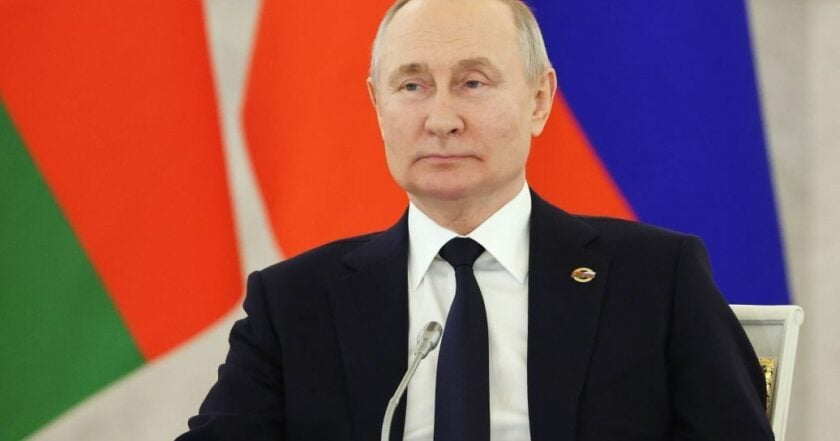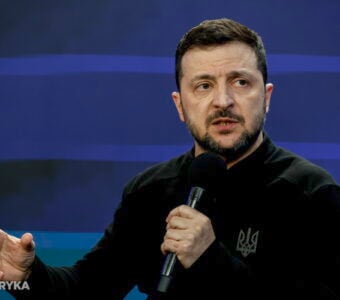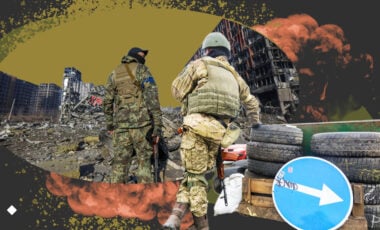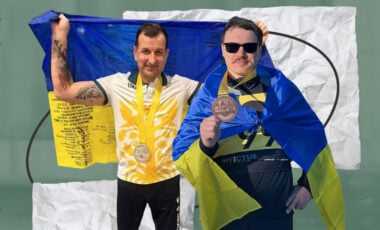Russian dictator replaces Shoigu to sustain prolonged war in Ukraine – ISW

Photo: Associated Press
According to experts at the Institute for the Study of War (ISW), Russian dictator Vladimir Putin is in the process of replacing leaders, specifically at the Russian Ministry of Defense. This indicates that he is ramping up efforts for a prolonged war in Ukraine and may also be gearing up for a potential clash with NATO in the future.
ISW reports this.
On May 12, Putin replaced Sergei Shoigu with Andrei Belousov as Russia's defense minister, moving Shoigu to the position of Secretary of the Security Council in place of Nikolai Patrushev.
According to analysts, these recent significant changes in personnel following Russia's fraudulent presidential election strongly indicate that Putin is making significant efforts to activate the Russian economy and defense industry to back the ongoing war in Ukraine and potentially prepare for a future conflict with NATO.
According to experts, Belousov's nearly ten-year term as Minister of Economy in the Russian federal government and his recent participation in managing several domestic innovative military defense and drone projects have fully equipped him to lead the Russian Ministry of Defense, which currently faces challenges.
"Belousov has a solid reputation as an effective technocrat, and insider sources claim that he also has a positive relationship with Putin," the report says.
According to experts, Shoigu's appointment as Security Council secretary instead of Patrushev reflects Putin's strategy of discreetly removing high-level security officials by giving them less prominent roles in Russia's security sector rather than terminating their positions outright.
ISW notes that Putin has similarly sidelined his failed generals in the past, assigning them to peripheral security and defense positions outside of direct reporting and sometimes allowing them to "atone for their guilt and return to Putin's service."
In addition to firing Patrushev, Putin has largely reassigned the heads of Russia's leading security services, suggesting that he is retaining a core of loyal security forces.
ISW Key Findings as of May 12:
- On May 12, Russian President Vladimir Putin replaced Sergei Shoigu with Andrei Belousov as Russian Minister of Defense, moving Shoigu to the position of Security Council Secretary in place of Nikolai Patrushev. These high-level reshuffles following the Russian presidential election strongly suggest that Putin is taking significant steps towards mobilizing the Russian economy and defense industrial base (DIB) to support a protracted war in Ukraine and possibly prepare for a future confrontation with NATO.
- Belousov's nearly decade-long tenure as an economic minister in the Russian federal government and his more recent involvement in managing various domestic DIB innovation and drone projects prepare him well to lead the struggling Russian MoD apparatus.
- Shoigu's replacement of Patrushev as Security Council Secretary aligns with Putin's general pattern of quietly sidelining high-level security officials by granting them peripheral roles within the Russian security sphere rather than simply firing them.
- Russian offensive efforts to seize Vovchansk (northeast of Kharkiv City) are, in large part, a consequence of the tacit Western policy that Ukrainian forces cannot use Western-provided systems to strike legitimate military targets within Russia.
- Ukrainian forces continue to conduct repeat strikes on Russian oil and defense industrial infrastructure, prompting Russian military bloggers to complain about Russian forces' apparent and continued inability to defend against these strikes.
- Several German politicians from different political parties expressed support for using NATO air defense systems stationed in NATO member states to shoot down Russian drones over western Ukraine.
- Russian forces recently made confirmed advances near Lyptsi and Vovchansk in the northern Kharkiv region.
- Former Roscosmos (Russian space agency) head and ultranationalist figure Dmitry Rogozin highlighted Russian forces' continued difficulty repelling Ukrainian drones on the frontline.





















































